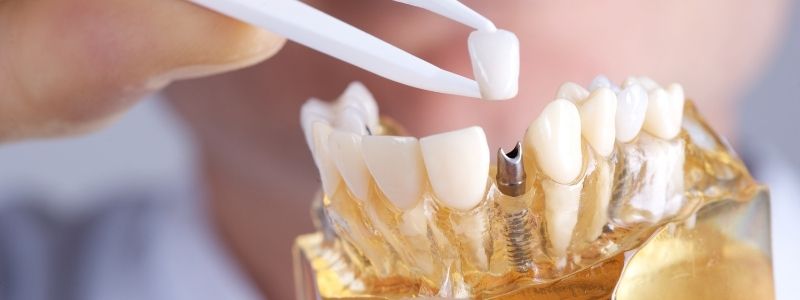The condition of each patient is different, but the healing process after dental implant surgery varies depending on how many implants have been made and whether the patients have followed the recommendations described. The insertion of an implant into the bone in the recipient area is an operation of about 15 minutes under local anesthesia, and patients most often do not need the use of painkillers after two or three days.
It is very important to take care of your oral health after your implant is inserted. In order for your implant to successfully fuse with your bone, your oral hygiene must be in place and the oral environment must be clean. Do not hesitate to brush your teeth after the operation. After the operation, take a toothbrush with very soft bristles and gently clean the wound area with this toothbrush. You can’t damage the stitches and the wound area unless you apply excessive force, but if you don’t brush your teeth and the wound area for ten days a week, you can cause infection! As long as the pain persists, you can use painkillers.
Although implant dental treatment is a surgical operation, it causes much fewer side effects than the pain or pain that a similar treatment or operation will give under normal circumstances. The sizes of the right size and worked with especially successful, with the detection of a dental implant during the cultivation of the diagnosis that was performed, depending on the patient, local anesthesia or general anesthesia, because it applies any pain during the procedure, such as pain and suffering or is not able to live in conditions as numbness in the jaw area after the operation and with the passage of a little twinge it is quite normal to feel a slight bump.
In any case, this pain and swelling condition experienced after a surgically performed operation can be reduced to a level that is too small to be felt with painkillers and antibiotics that the dentist deems appropriate, if necessary. At the same time, if the swelling is observed in the area where the implant treatment is applied, it completely disappears within a few hours after the operation or within a few days, depending on the patient’s structure.
How long does the swelling last after the implant?
Teeth can disappear due to genetic factors, advancing age, or the absence of adequate care. Completely lost teeth are not a condition that reduces comfort as much as before and restricts a person’s chewing functions indefinitely. Implant treatment, which is one of the methods developing in maxillofacial surgery, is the best treatment alternative for a lost tooth.
Implant treatment is a new aesthetic tooth restoration method with screw-type devices instead of the removed tooth. The artificial tooth treatment will have the same function as your own teeth and will have a naturalness that will not be noticeable among your other teeth. However, patients may have concerns about this procedure, which will raise their standard of living over time, especially after a full recovery.
After all, in implant treatment, which is a surgical method, the bone responds to the trauma it experiences due to the introduction of a new foreign structure into the jawbone. During the recovery period, the acceptance of the implant by the bone and tissues in the area creates situations that will vary from patient to patient. However, if the protocols followed before the treatment are not appropriate, the implant is not made anyway.
As a result of this examination and the control of the protocols, the implant process that is planned to be performed has a healing process that varies from person to person. In general, it is observed that patients do not experience severe pain and an unbearable process after treatment.
What causes swelling after dental implant?
After implant treatment, it is normal to have swelling in the area where the surgical intervention was performed. A slot opened for implant treatment in the jawbone leads to a small tram in the gum implant area. The dentist expects a slight swelling in this area, considering it already normal. It is necessary to make an ice compress on the implant site. Although implant applications give very successful results, there are a number of complications that may occur after these applications. These include conditions such as redness, pain, swelling, bruising, and decubitus. In some cases, problems such as inflammation and implant fall may occur after implant application. If there is no doctor’s error in such cases, it is possible that the patient does not take into account the recommendations of the dentist and that there are problems caused by a hygiene problem. Serious complications can also occur due to a doctor’s mistake.
References:
https://www.smilesforlifeonline.com/blog/2019/10/11/swelling-after-dental-implant-surgery-201993


Dentist Yasin Yılmaz was born in 1994 in Kayseri. In 2017, he graduated from Hacettepe University Faculty of Dentistry with a successful degree. In 2017, he began working as a dentist and medical director at a private clinic. In September 2018, he joined Ersoy Hospital Dental Department team where he still works







